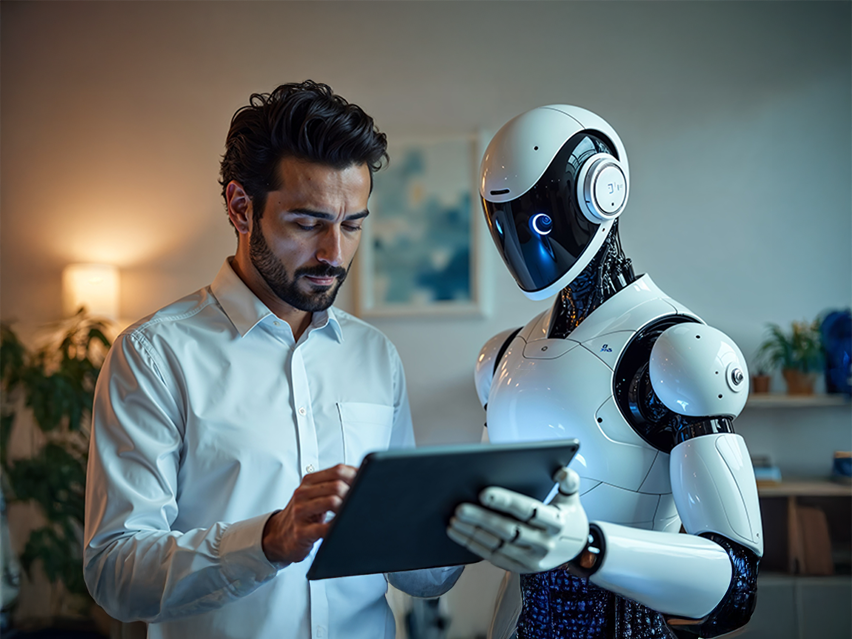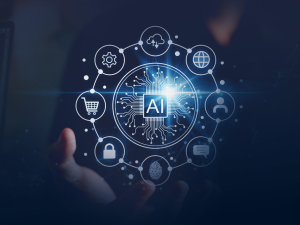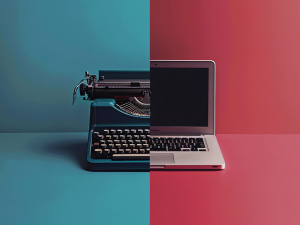Let’s just say it out loud, “Will AI replace developers?” is the question that echoes through every tech panel, coffee break, and LinkedIn scroll these days. And we get it. When a technology as powerful as AI enters the scene, uncertainty is natural. But let’s cut through the noise and talk about what’s really changing, because this isn’t the end of software engineering; it’s the start of a fascinating evolution shaping the future of software jobs.
We have been working with technology for nearly three decades now. We have seen waves—Java fever, the dot-com boom, the cloud revolution, mobile-first everything. Each wave came with its doomsday predictions, “This will kill jobs”, “That will automate us out”. But here is the thing: it never did. What happened instead? Roles changed. Skills shifted. And people adapted. That is exactly where we are with AI.
AI is not some faceless villain out to replace every developer in the room. It is a tool, an incredibly smart, fast-evolving tool, that can help developers move faster and solve harder problems. This is the reality of AI in software engineering.
Take GitHub Copilot, for instance. Ask any developer using it, and you will likely hear the same thing: it saves time on boilerplate code, accelerates prototyping, and even helps with syntax in languages they are less familiar with. But is it replacing them? Not at all. It is more like a helpful co-pilot, thus the name. It gives a head start, but it still needs a human to steer.
Ritesh, one of our senior engineers, put it best, “I use AI daily, and it’s made me more efficient, not redundant. I’m no longer stuck rewriting the same function five times. Instead, I get to focus on what really matters, thinking about how to improve user experience and solve bigger problems.”
That is the shift that is happening, and it is a good one.
AI is not eliminating jobs; it is transforming how we work. Instead of spending hours debugging or writing repetitive test cases, developers are now spending more time on creative problem-solving, architecture decisions, and refining user journeys. AI handles the grunt work, while humans stay in charge of the big picture. That’s what the future of software jobs looks like.
It is a myth that AI can write perfect code on its own. It can generate snippets, yes, but context? Nuance? Business logic? Those still belong firmly in the human domain. Software is not just lines of code—it is understanding users, anticipating edge cases, making trade-offs. That level of judgment is not something a model can replicate, at least not yet, and certainly not well enough to ship a reliable product.
Now, does that mean every developer role will stay exactly the same? No, and honestly, it should not. Just like we moved from monoliths to microservices, or from manual testing to CI/CD pipelines, the job will keep evolving. AI and jobs are not opposites; they are partners in progress.
And that evolution means developers will need to grow too. Skills like prompt engineering, AI model understanding, and ethical tech design are becoming valuable additions to the developer toolkit. We are not replacing engineers; we are upgrading them.
AI is no longer just a tool for individuals; it’s becoming part of the daily workflow across teams. From AI-powered code reviews to smarter testing frameworks, entire pipelines are getting more intelligent. But none of it works without engineers guiding the process. In fact, AI has made collaboration even more critical. Someone needs to ask the right questions, verify the outputs, and make sure the AI isn’t hallucinating its way into production.
So, if you are a developer—or an aspiring one—don’t be afraid. Be curious. Learn how AI tools work. Understand their limitations. And lean into what makes you irreplaceable: judgment, creativity, empathy, and the ability to build with purpose.
Think of it this way: calculators did not replace mathematicians. They just freed them to focus on bigger problems. The same is happening with software engineering. We are not coding less, we are coding smarter.
So no, AI isn’t here to take your job. It is here to change the job, and that is not something to fear. That is something to prepare for, engage with, and shape.
The future of software jobs isn’t about replacement. It is about reinvention. And in that future, developers who thrive will be the ones who don’t just write code but who think boldly, learn constantly, and build things that matter.
Explore further
Discover more Articles and stay in the know.



